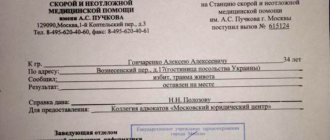In fact, in most cases, property and accounts are seized not by the court, but by bailiffs. Their official duty is to implement the court decision. If the court makes a decision to collect the debt, the defendant is given only 5 days to voluntarily give the necessary funds to the plaintiff. After this, the procedure for forced debt collection begins, which also involves the seizure of the debtor’s bank account and property.
Sometimes the court imposes a seizure before the end of the process. This is possible in cases where the dispute in court is about specific property. This measure is used to ensure that the defendant does not sell it before the court decision. In this case, the arrest imposed by the court is lifted after the trial.
If you want to lift the arrest imposed by the bailiffs to enforce a court decision, you should contact a specialist. This task is best handled by a lawyer who specializes in debt disputes.
Do you want to figure it out, but don’t have time to read the article? Lawyers will help
Entrust the task to professionals. Lawyers will complete the order at the cost you specify
1 lawyers at RTIGER.com can help with this issue
Solve the issue >
In order not to be puzzled by the complex search for a specialist, you can find one on our service. Wherein:
- You will save time on searching, as you will find many trusted companies in one place.
- You will be able to choose a specialist according to your price: when creating an application, you specify the budget yourself, and will receive offers only from those specialists who agree to work within its framework.
The service will transfer money to the contractor only when the latter completes the work and you confirm the completion of the order.
When do bailiffs get the right to seize an apartment?
The seizure of real estate by bailiffs is carried out during enforcement proceedings on the basis of a writ of execution by a court decision.
According to the procedure for conducting enforcement activities, the bailiff in this case makes requests to financial institutions about the availability of accounts issued in the name of the debtor or bank cards. If it is discovered that the debtor does not have the required amount of funds, the bailiff turns his attention to his property and real estate. When the amount of debt is too large, it is quite possible that the apartment will be seized. If a citizen only owns a share in an apartment, then only part of it will be seized.
This debt collection measure is applied in the following cases:
- The owner of the apartment has a mortgage debt or back taxes.
- A property dispute arose between the owner of the apartment and his relatives.
- There is a claim for damages or division of property.
- The presence of debts on utility bills, bank loans, unpaid administrative fines, if they are commensurate with the cost of the apartment.
Do you need legal advice on working with bailiffs?
We will analyze your prospects for free!
+7
Cancellation of seizure of property in a criminal case. Resolution of the Constitutional Court of the Russian Federation dated April 17, 2019 No. 18-P
Maintaining a seizure of the property of a person who is not the accused or a person legally liable for his actions
, in order to ensure a civil claim after the verdict enters into legal force, means a disproportionate and unjustified derogation of property rights, does not meet the constitutional criteria of fairness and proportionality of restrictions on rights and freedoms, does not provide guarantees of property protection by law, arising from the principle of inviolability of property, as well as guarantees of judicial protection , and therefore
contradicts the Constitution
of the Russian Federation, its articles 35 (part 1) and 46 (part 1).
CONSTITUTIONAL COURT OF THE RUSSIAN FEDERATION
In the name of the Russian Federation
DECISION of April 17, 2022 N 18-P
IN THE CASE OF VERIFYING THE CONSTITUTIONALITY OF PART FIRST ARTICLE 73, PART FIRST ARTICLE 299 AND ARTICLE 307 OF THE CRIMINAL PROCEDURE CODE OF THE RUSSIAN FEDERATION IN CONNECTION WITH THE COMPLAINT OF CITIZEN I.V. YANMAEVA
The Constitutional Court of the Russian Federation, composed of Chairman V.D. Zorkin, judges K.V. Aranovsky, A.I. Boytsova, N.S. Bondar, G.A. Gadzhieva, Yu.M. Danilova, L.M. Zharkova, S.M. Kazantseva, S.D. Knyazeva, A.N. Kokotova, L.O. Krasavchikova, S.P. Mavrina, N.V. Melnikova, Yu.D. Rudkina, O.S. Khokhryakova, V.G. Yaroslavtseva,
guided by Article 125 (part 4) of the Constitution of the Russian Federation, paragraph 3 of part one, parts three and four of Article 3, part one of Article 21, articles 36, 47.1, 74, 86, 96, 97 and 99 of the Federal Constitutional Law “On the Constitutional Court of the Russian Federation” Federation",
considered at a meeting without a hearing the case on checking the constitutionality of part one of Article 73, part one of Article 299 and Article 307 of the Code of Criminal Procedure of the Russian Federation.
The reason for considering the case was a complaint from citizen I.V. Yanmaeva. The basis for considering the case was the revealed uncertainty regarding the question of whether the legal provisions challenged by the applicant comply with the Constitution of the Russian Federation.
Having heard the report of judge-rapporteur N.V. Melnikov, having examined the presented documents and other materials, the Constitutional Court of the Russian Federation
installed:
1. The Criminal Procedure Code of the Russian Federation regulates in the first part of Article 73 the circumstances that are subject to proof in criminal proceedings, in the first part of Article 299 - issues resolved by the court when rendering a sentence, in Article 307 - the content of the descriptive and motivational part of the guilty verdict.
By an appeal verdict of the Volgograd Regional Court dated March 31, 2016, a number of citizens were found guilty of committing crimes under parts three and four of Article 159 of the Criminal Code of the Russian Federation, and were convicted of actions related to the theft of money belonging to investors in a housing construction cooperative, committed by an organized group in on a large and especially large scale through deception and abuse of trust. The same verdict recognized the right of victims to satisfy civil claims, and the issue of the amount of compensation for the harm caused to them was referred to consideration in civil proceedings. At the same time, the seizure previously imposed on a number of property objects, including a two-room apartment in the city of Volgograd and a car, the ownership of which was not disputed by interested parties and was registered for I.V., was retained until such damage was fully compensated. Yanmaeva (former surname - Strebkova), who participated in the criminal case as a witness and was not involved as an accused, a civil defendant or a person obliged to compensate for the damage caused by the perpetrators (and from the records of the search and inspection carried out in this apartment indicated in the verdict, it follows that that she actually lives there).
Judges of the courts of cassation agreed with the verdict (decrees of the judge of the Volgograd Regional Court dated December 29, 2016 and judges of the Supreme Court of the Russian Federation dated March 23, 2017) and the Deputy Chairman of the Supreme Court of the Russian Federation (decision dated February 13, 2022). Rejecting the arguments of cassation appeals I.V. Yanmaeva, they proceeded from the fact that the circumstances that served as the basis for the seizure of the apartment and car belonging to her did not disappear and were confirmed during the consideration of the criminal case on the merits: these objects were transferred to one of the convicts into the ownership of I.V. Yanmaeva, who was a co-founder of a legal entity created for the purpose of preserving funds and property obtained by criminal means.
In his complaint to the Constitutional Court of the Russian Federation, I.V. Yanmaeva claims that part one of article 73, part one of article 299 and article 307 of the Code of Criminal Procedure of the Russian Federation do not correspond to articles 17 (part 3), 19 (parts 1 and 2), 35 (parts 1 - 3), 46 (part 1) and 55 (part 3) of the Constitution of the Russian Federation, since, due to the presence of a gap in the current legal regulation, they allow the court, in order to secure a civil claim after the verdict has entered into legal force (clause 11 of part one of Article 299 of this Code), to preserve, when rendering a verdict, the seizure previously imposed on property property that is not subject to confiscation and belongs to a person who is not the accused in a criminal case or a person legally liable for his actions, without establishing, proving and stating in the verdict the circumstances confirming that this property, in particular, was obtained as a result of the commission of a crime or is income from this property. If the decision on the fate of property subject to confiscation is regulated by this Code (clause 8 of part one of Article 73, part three of Article 115, article 115.1, clause 10.1 of part one of Article 299 and clause 4.1 of Article 307), then in relation to property not subject to confiscation , but subject to arrest to secure a civil claim, there is, in the applicant’s opinion, legal uncertainty that makes it possible to limit the rights of its owners without providing them with effective guarantees for the protection of property rights.
Thus, taking into account the requirements of Articles 36, 74, 96 and 97 of the Federal Constitutional Law “On the Constitutional Court of the Russian Federation”, specifying Article 125 (Part 4) of the Constitution of the Russian Federation, part one of Article 73, part one of Article 299 and Article 307 of the Code of Criminal Procedure of the Russian Federation Federations are the subject of consideration by the Constitutional Court of the Russian Federation in this case insofar as on their basis, in the system of current legal regulation, a court verdict resolves the issue of preserving, after the verdict enters into legal force, the arrest imposed in the framework of criminal proceedings on the property of a person who is not the accused or a person legally liable for his actions, in order to secure a civil claim.
2. The Constitution of the Russian Federation classifies among the fundamental rights and freedoms of man and citizen, recognized, respected and protected by the state, the right of private property, which, according to its Article 35, is protected by the state (Part 1), includes the right of everyone to own property , own, use and dispose of it both individually and jointly with other persons (Part 2), while no one can be deprived of their property except by a court decision (Part 3).
The above constitutional provisions express, in fact, one of the fundamental aspects of the rule of law - the generally recognized principle of inviolability of property, which acts as a guarantee of property rights in all its components, such as possession, use and disposal of one’s property. By virtue of this principle, as well as the fundamental principles of legal equality and justice, state intervention in property relations should not be arbitrary and upset the balance between the requirements of the interests of society and the necessary conditions for the protection of individual rights, which presupposes reasonable proportionality between the means used and the goal pursued, so that a balance of constitutionally protected values was ensured and the person was not subject to excessive burdens (Resolution of the Constitutional Court of the Russian Federation of July 16, 2008 N 9-P, etc.).
From the provisions of Articles 55 (Part 3) and 71 (clauses “c”, “o”) of the Constitution of the Russian Federation in conjunction with its Articles 8, 17, 19, 35 and 46, it follows that restrictions on property rights can be introduced by federal law only if they are necessary to protect other constitutionally significant values, including the rights and legitimate interests of other persons, and meet the requirements of justice. Constitutional guarantees for the protection of private property, including its judicial protection, apply both to the sphere of civil law relations and to relations between the state and the individual in the public legal sphere. This means that restrictions on the possession, use or disposal of property imposed to ensure criminal proceedings, confiscation of property from the owner, regardless of the grounds for such confiscation, since they are coercive in nature, presuppose the existence of a mechanism that allows effectively protecting the interests of both persons in court who brought a claim for compensation for damage caused by the crime, and persons obliged to compensate it.
3. Based on the provisions of the Constitution of the Russian Federation, the Civil Code of the Russian Federation establishes as the main principles of civil legislation the inviolability of property, equality, autonomy of will and property independence of participants in civil transactions, the unhindered exercise of civil rights, ensuring the restoration of violated rights, their judicial protection (clause 1 Article 1). These fundamental principles, as they are defined in the Constitution of the Russian Federation and the Civil Code of the Russian Federation, underlie any legislative regulation in this area, including determining the grounds and procedure for the emergence, change and termination of rights of ownership, use and disposal of property, as well as determining the scope of their protection and legal restrictions.
The norms of the Criminal Procedure Code of the Russian Federation are also aimed at protecting the right of property and related legal relations, which recognizes the purpose of criminal proceedings as the protection of the rights and legitimate interests of individuals and organizations that have suffered from crimes, and the protection of the individual from illegal and unfounded accusations, convictions, restrictions her rights and freedoms (part one of Article 6). According to this Code, during criminal proceedings, the nature and extent of the damage caused by the crime must be proven (clause 4 of part one of Article 73), and having established that the crime caused property damage, the investigator, interrogating officer is obliged to take measures to establish the property of the suspect, accused or persons legally liable for their actions, the value of which ensures compensation for such damage, as well as measures to seize this property to ensure the execution of the verdict in terms of a civil claim, collection of a fine, other property penalties or possible confiscation of the property specified in part one of the article 104.1 of the Criminal Code of the Russian Federation.
As noted by the Constitutional Court of the Russian Federation, the seizure of property cannot be arbitrary and must be conditioned by the alleged involvement of a specific person in criminal activity or the alleged criminal nature of the origin (use) of specific property, or must be based on a law establishing the financial responsibility of a person for the actions of a suspect or the accused (Resolution of January 31, 2011 No. 1-P).
Seizure of property held by persons who are not suspects, accused or persons legally liable for their actions is permitted only for public law purposes of ensuring the intended confiscation of property or the safety of property related to material evidence in a criminal case, and only on the condition that in relation to this property there are - taking into account the possible urgent situation during the initial application of this compulsory measure, expressed, inter alia, in the incomplete establishment of circumstances subject to proof in accordance with Article 73 of the Code of Criminal Procedure of the Russian Federation in a criminal case - sufficient, evidence-supported grounds to believe that it was obtained as a result of the criminal actions of the suspect or accused, or was used or intended to be used as an instrument of crime or to finance criminal activities. However, it is not excluded that the legal regime of seizure of property will remain in effect to ensure - with effective judicial control - private law purposes of compensation to the victim for harm caused by the crime, if a civil claim is filed in the case and the owner of the seized property is subject to prosecution as a civil defendant. In this case, the extension of the seizure of property should be carried out on the basis of part one of Article 115 of the Code of Criminal Procedure of the Russian Federation, taking into account compliance with the rules on the limitation period and the involvement of the owner of the seized property as a civil defendant (Resolution of the Constitutional Court of the Russian Federation of October 21, 2014 N 25-P; rulings of the Constitutional Court of the Russian Federation dated February 28, 2022 N 471-O-R and April 24, 2022 N 878-O). The extension of the period of seizure of property is also carried out taking into account the results of the preliminary investigation, which makes it possible, in particular, to assess whether the seized property was actually acquired from a person who did not have the right to alienate it (which the acquirer did not know and could not know), knew or should have the owner of the seized property knows that it was obtained by criminal means, whether he is involved in the commission of a crime and whether he is subject to criminal liability, whether the property was acquired for compensation or free of charge (Resolution of the Constitutional Court of the Russian Federation of October 21, 2014 N 25-P).
At the same time, due to the principles of the rule of law (including protection from arbitrary actions of government bodies and officials), the inviolability of property and the balance of private and public interests, the seizure of property within the framework of a criminal case (including the seizure of it or recognition of it as material evidence with a storage regime limiting the rights of ownership and use of property), which is in the possession of persons who are not suspects or accused and are not legally liable for their actions, and the use of which in the commission of a crime is only assumed, can only be of a temporary nature and applied when providing such persons with procedural guarantees for the protection of rights through justice that meets the requirements of fairness and equality (Resolution of the Constitutional Court of the Russian Federation of January 11, 2022 N 1-P).
4. Completing the preliminary investigation, the investigator or interrogating officer recognizes that all investigative actions in the criminal case have been carried out, and the collected evidence is sufficient to draw up an indictment, indictment or indictment (part one of Article 215, Articles 225 and 226.7 of the Code of Criminal Procedure of the Russian Federation). A certificate is attached to the indictment and the indictment, which also indicates information about the civil claim, measures taken to ensure the execution of the penalty in the form of a fine, to secure the civil claim and possible confiscation of property, procedural costs (part five of Article 220 and part three. 1 article 225 of the Code of Criminal Procedure of the Russian Federation).
Paragraph 1 of Article 307 of the Code of Criminal Procedure of the Russian Federation directly relates the description of a criminal act, including the consequences of the crime, to the content of the descriptive and motivational part of the conviction, and part one of Article 73 of this Code recognizes the nature and extent of harm as subject to proof, along with the event of the crime (clause 1), caused by a crime (paragraph 4), thereby ensuring proof of the subject of the civil claim filed by the victim in a criminal case (resolutions of the Constitutional Court of the Russian Federation dated April 7, 2015 N 7-P and November 8, 2016 N 22-P; determinations of the Constitutional Court of the Russian Federation dated February 9, 2016 N 221-O, dated October 11, 2016 N 2164-O, etc.).
Within the meaning of these norms and legal positions of the Constitutional Court of the Russian Federation, and also taking into account the principle of legality in criminal proceedings, by virtue of which court rulings, decisions of a judge, prosecutor, investigator, inquiry agency, head of an inquiry agency, head of an inquiry unit, an interrogator must be legal, justified and motivated (part four of Article 7 of the Code of Criminal Procedure of the Russian Federation), procedural decisions taken in the framework of a criminal case in a civil claim - as interim (recognition as a civil plaintiff, involvement as a civil defendant, seizure of property in order to secure the claim, extension of this compulsory measure, leaving the claim without consideration), and final (refusal of satisfaction or satisfaction of the claim) - require justification by available evidence, subject to judicial review and evaluation.
5. When rendering a verdict, the court resolves in it, among others, the questions of whether a civil claim is subject to satisfaction, in whose favor and in what amount, how to deal with property that has been seized to ensure the execution of a fine, to ensure a civil claim or possible confiscation, what to do with material evidence (paragraphs 10, 11 and 12 of part one of Article 299 of the Code of Criminal Procedure of the Russian Federation).
At the same time, the subject of proof in a criminal case, the issues resolved by the court when rendering a sentence, and the content of the descriptive and motivational part of the guilty verdict do not formally include the question of the legal grounds for the use of the property of a person who is not the accused or a person legally liable for material responsibility for his actions, to compensate for the harm caused by the crime to the victim, which makes it possible to leave the question of the validity of the seizure previously imposed on property for this purpose unresolved, although the court - by virtue of a special instruction of the Criminal Procedure Code of the Russian Federation - is obliged to motivate its conclusions about the proof of the grounds for confiscation of property (clause 8 of part one of Article 73, clause 10.1 of part one of Article 299 and clause 4.1 of Article 307).
Moreover, with regard to the possibility of preserving, after the verdict has entered into legal force, a seizure imposed on the property of a person who is not the accused or a person legally liable for his actions, the Constitutional Court of the Russian Federation in its Ruling of November 29, 2012 N 2227-O noted the following. Seizure of property refers to measures of procedural coercion used in order to ensure the established order of criminal proceedings, proper execution of the sentence (clause 4 of part one of Article 111 of the Code of Criminal Procedure of the Russian Federation), and as such is temporary in nature, and therefore seizure of property for the purpose of securing a civil claim in a criminal case cannot go beyond the time frame of criminal procedural relations associated with the investigation and resolution of this criminal case. Consequently, part nine of Article 115 of the Code of Criminal Procedure of the Russian Federation, which establishes that the seizure of property is canceled on the basis of a resolution, determination of the person or body in charge of the criminal case, when the application of this measure is no longer necessary, in the system of current legal regulation implies the possibility of preserving this measures only for the period of preliminary investigation and trial in a criminal case, but not after the end of the trial and the entry into force of the verdict. Otherwise, it would lead to the replacement of private law mechanisms for resolving property disputes with criminal procedural means, which would go beyond the time frame of criminal procedural relations, and securing claims by maintaining a seizure of property without procedural guarantees for protecting the rights of the owner would not meet the requirements of Articles 17, 19, 35 (part 1) and 46 (part 1) of the Constitution of the Russian Federation would entail an indefinite restriction of his rights not controlled by the court.
Thus, maintaining a seizure of the property of a person who is not the accused or a person legally liable for his actions in order to secure a civil claim after the verdict has entered into legal force means a disproportionate and unjustified derogation of property rights and does not meet the constitutional criteria of fairness and proportionality restrictions on rights and freedoms, does not provide guarantees of property protection by law, arising from the principle of inviolability of property, as well as guarantees of judicial protection, and therefore contradicts the Constitution of the Russian Federation, its Articles 35 (Part 1) and 46 (Part 1).
6. Part two of Article 309 of the Code of Criminal Procedure of the Russian Federation provides for the possibility of recognizing in a court verdict a civil plaintiff’s right to satisfy a civil claim and transferring the issue of the amount of compensation (if necessary, to make additional calculations related to the claim, requiring the postponement of the trial) for resolution in a civil manner legal proceedings.
In this regard, further, after the verdict, proceedings in a civil claim in order to resolve the issue of the amount of compensation in civil proceedings also presuppose the possibility of securing a claim by seizing property, which, however, cannot be arbitrarily applied to the property of a person other than the accused or a person legally liable for his actions.
However, the need to achieve a balance of the rights and legitimate interests of a person who is not a suspect, accused, convicted or a person legally liable for their actions, and whose property is seized, on the one hand, and the constitutionally protected rights of crime victims , on the other hand, does not exclude the power of the federal legislator to carry out legal regulation of such seizure for the purposes of compensation for damage caused by the crime, including the provision of appropriate procedural guarantees for the protection of the rights of persons who have this property, and the establishment of procedural mechanisms for transferring the seizure of this property from criminal to civil ( arbitration) legal proceedings in the event of recognition in the verdict of the right to satisfy a civil claim when justifying in it the actual ownership of property located in a person who is not a suspect, accused, convicted or a person legally liable for their actions, to a person found guilty by the verdict of committing a crime.
Based on the above and guided by Articles 47.1, 71, 72, 74, 75, 78, 79, 87 and 100 of the Federal Constitutional Law “On the Constitutional Court of the Russian Federation”, the Constitutional Court of the Russian Federation
decided:
1. Recognize the first part of Article 73, the first part of Article 299 and Article 307 of the Code of Criminal Procedure of the Russian Federation as not corresponding to the Constitution of the Russian Federation, its Articles 35 (Part 1) and 46 (Part 1), to the extent that in the system of current legal regulation according to the meaning given to them by law enforcement practice, these norms make it possible to preserve, after the verdict has entered into legal force, a seizure imposed in the framework of criminal proceedings on the property of a person who is not the accused or a person legally liable for his actions, in order to secure a civil claim .
2. Law enforcement decisions made in relation to citizen Irina Vyacheslavovna Yanmaeva and based on part one of Article 73, part one of Article 299 and Article 307 of the Code of Criminal Procedure of the Russian Federation are subject to review taking into account the legal positions expressed by the Constitutional Court of the Russian Federation in this Resolution, as established by law ok.
3. This Resolution is final, not subject to appeal, comes into force on the date of official publication, is effective directly and does not require confirmation by other bodies and officials.
4. This Resolution is subject to immediate publication in the Rossiyskaya Gazeta, Collection of Legislation of the Russian Federation and on the Official Internet Portal of Legal Information (www.pravo.gov.ru). The resolution must also be published in the “Bulletin of the Constitutional Court of the Russian Federation”.
Constitutional Court of the Russian Federation
Can a single residence be seized?
In accordance with the resolution adopted at the plenum of the Supreme Court of the Russian Federation on November 17, 2015, number 50, the arrest of the only housing suitable for living (namely, an apartment) is possible. And the ban imposed on the disposal of this property is completely legal. But the debtor and family members have the right to use the property. And they cannot be prohibited from doing so.
As the resolution indicates, this measure is intended to ensure enforcement proceedings or a court decision. That is, it will not be possible to sell an apartment “under the hammer” at an open auction. But if this is a private house, and the land under it belongs to the debtor as a property owner, then a part of the land plot that exceeds the minimum size of the land plots provided can be cut off and sold. The proceeds will be used to pay off debts.
What cannot be arrested
However, there is property that cannot be seized and included in the bankruptcy estate, regardless of the nature and size of the debt. The list of this property is determined by Art. 446 Code of Civil Procedure of the Russian Federation:
- the only housing
- the land on which it is located
- household items (furniture, refrigerator, washing machine and others)
- things intended for personal use
- products
- animals, if their maintenance is not related to profit-making or business activities
- items, including means of transportation, necessary for the debtor due to disability
- items used for professional activities (for example, musical instruments), provided that their cost does not exceed 10 thousand rubles.
Be careful!
Of course, exceptions to some points are possible. For example, housing and land can be seized if they are encumbered with a mortgage. Items intended for individual use are also confiscated in the case of luxury goods. These include jewelry with precious or semi-precious stones, items made from natural valuable fur, antique items and others.
What to do if the apartment is seized?
The resolution also states that the seizure of the debtor's apartment is carried out in order to ensure the rights of the creditor. In other words, so that the debtor cannot complete a purchase and sale transaction, fictitiously or real, donate housing, or find another method of alienation that would allow him to exclude the apartment from the list of property subject to possible recovery in favor of the creditor. Now the court has the right to decide to seize the only residential premises. The debtor will be prohibited from selling housing, including partial sale, or renting it out. He will also not be able to move in, register a new tenant or evict someone. Carrying out any legally significant action in relation to real estate is strictly prohibited. However, all residents of the apartment who are registered in it and lived before the court decision on the arrest will still be able to live here.
If the owner of the property, in addition to the debtor, is his wife, the entire apartment as a whole is still seized. The wife's share can be released from arrest after this share has been determined and allocated by legal means.
Sequence of payments when seizing an account
In accordance with Article 855 of the Civil Code of the Russian Federation, there are five write-off stages. First of all, debts under enforcement documents for the collection of alimony and compensation for harm caused to the health of another citizen are written off from the bank account.
Secondly, transfers for wages of employees (if any) and royalties are withheld.
Thirdly, funds are debited from the account for payment documents (to pay employees), to pay off tax debts, and to transfer insurance contributions to extra-budgetary funds on behalf of government agencies.
Fourthly, penalties for administrative fines, legal costs, etc. are withheld according to executive documents.
Fifthly, for the remaining payment documents.
What should be the procedure?
First, it is important to determine the reason for the seizure of the apartment. If the seizure was imposed for mortgage debts, then the release of the only home will occur when its owner pays all debts.
After the owner of the apartment submits an application to the judicial authorities to lift the arrest, the document will be immediately accepted for processing.
Important! Only the real owner of the apartment can submit an application to lift the arrest. Even trusted representatives do not have this right.
- You will need to pay a state fee. This will serve as proof that the owner of the property is the owner of the apartment. Then all necessary documents must be submitted to the court confirming that the real estate belongs to this particular citizen. In addition, the owner is required to submit other documents indicating payment of the debt, fine and tax.
- The court sets a date for a hearing to consider the case. Based on its results, a decision will be made whether to lift the arrest from the apartment or not.
- If, in your opinion, the court made an unreasonable decision, then you can appeal it to a higher authority. As a last resort, you can complain about the judge and challenge him.
How to draw up and send an application to the court to lift the ban on registration actions
Complete a statement and send it to the court in paper or electronic form. You must present your application to two defendants. The application must be drawn up according to the special rules established by Art. 199 of the Arbitration Procedure Code of the Russian Federation (for filing a claim in the arbitration court) and Art. 220 CAS RF (for filing with a court of general jurisdiction). In particular, indicate the position and full name. the bailiff whose decision you are challenging, the number and date of the decision, as well as information about the writ of execution.
The main thing is to give the reasons why you consider the ban decision to be unlawful. For example, indicate that the value of your foreclosed property is significantly greater than the amount owed.
Attach to the application the documents specified in Part 2 of Art. 199, part 1 art. 126 Arbitration Procedure Code of the Russian Federation or Part 3 of Art. 220, part 1 art. 126 CAS RF.
If you file a claim in a court of general jurisdiction, be sure to indicate whether you filed a complaint about lifting the ban with a higher-ranking bailiff. If yes, then attach his answer (Part 3 of Article 220 of the CAS RF). We recommend doing the same when applying to an arbitration court.
Sample
applications to the arbitration court to lift the bailiff's ban on registration actions with real estate.
Sample
applications to a court of general jurisdiction to lift the bailiff’s ban on registration actions with real estate.
What if the court decided to lift the arrest?
In most cases, if the owner has presented all the documents and receipts, the judge will accommodate the debtor.
Immediately after the decision to lift the arrest is made, a writ of execution is drawn up and sent to the bailiff. After the court decision enters into legal force, the seizure of the property is lifted.
As soon as the arrest is lifted, the owner regains the right to dispose of his property.
But it may turn out that the debtor was unable to fulfill all the judge’s requirements. Then the decision will be negative and appealing to other authorities will be useless.
Seizure of property: what is it?
Seizure of property is a method used by bailiffs to fulfill the requirements contained in the executive document.
Important!
An arrest can be made even during the time allotted for voluntary execution.
Everything related to the seizure of property is regulated by Federal Law FZ-229 “On Enforcement Proceedings”. In this case, special attention should be paid to Art. 80, since it specifies cases in which property belonging to the debtor may be seized by bailiffs.
Such cases include:
- the need to ensure the safety of items (for example, if the bailiff has reason to believe that some items may be hidden)
- execution of a judicial act containing demands for full or partial confiscation of property
- execution of a court order, which directly states the need to seize the property of an individual
The main condition without which an arrest is impossible is the presence of open enforcement proceedings.
How can you avoid having your apartment seized for debt?
- After you receive a copy of the order by mail from the bailiffs to initiate enforcement proceedings against you to collect debts, do not waste time and pay your debt. You will be given a period of several days for this.
- If the apartment has not yet been seized, but its owner knows that he has debts and the possibility of applying such a sanction exists for him, then for insurance purposes it is possible to quickly register the apartment in the name of one of his relatives.
- If you have a mortgage debt, you can also try to save the apartment. By the way, banks themselves are often not interested in terminating the mortgage. If you have a positive credit history, behave conscientiously and do not refuse to pay despite trouble, then this can be useful. No need to run from bank employees. Just tell them about the troubles you are having and ask them to make you installment payments or loan restructuring. This fact may serve as evidence of the borrower’s liability for the court. In this case, the court may decide in favor of the debtor.
Author of the article
How to find out if there is an arrest and who imposed it
Only the body by whose order or petition the seizure was imposed can remove restrictions from a residential property. Cancellation of the ban on a citizen’s right to fully dispose of his property occurs at the request of:
- owner;
- a trusted or interested person;
- judicial authorities.
You can obtain information about the existence of a seizure on the apartment and the government agency that imposed the restrictions via the Internet or from the My Documents organization (MFC). Any interested person, knowing the address of the residential premises, can submit a request on the Rosreestr portal. Information about the condition of the housing stock and its owners, according to state law, is not classified as secret or personal, so anyone can receive it. Information about all restrictions relating to citizens' real estate is available in Rosreestr.
The easiest way to get the information you need is via the Internet. You can order an extract from the Unified State Register on the Rosreestr portal. The document is issued for a fee, the cost of the service depends on the completeness of the information reflected in the document. The letter can be received in several ways:
- by mail;
- at the Rosreestr office;
- to the e-mail of the service customer.
You can order an extract through the government services portal or on real estate intermediary websites. To place an order for an information letter, you need to know the exact address of the home or its cadastral number. After submitting a request for a service, you will receive an email with your order number and bank details. Payment can be made in any available way:
- through the bank – online;
- transfer from a card;
- cash via ATM.
What property can and cannot be seized
Not all debtor's property is allowed to be seized or seized. For clarity, the table shows what can and cannot be seized.
| Can't be arrested | Can be arrested |
| The only housing for the debtor and his family with no alternative place of residence | Funds in any currencies that are stored in non-cash form in credit institutions |
| The land where the debtor's only living space is located | Securities |
| Household items, after the seizure of which, abnormal living conditions will arise for the debtor and his family | Debt to the debtor of other persons, that is, receivables |
| Clothes worn by the debtor's children | Any clearing, trading and other temporary storage accounts for assets |
| Awards, prizes, and other distinctions that were awarded by the state | Real estate |
| Personal belongings, items for performing work duties and household items | Movable property |
| Property and transport necessary for a debtor with disabilities | Other valuables owned by the debtor |
| Food products at a cost not exceeding the subsistence level for each family member | Property of lesser value than the formed payable pledge |
| Outbuildings for livestock, beehives and other property for agricultural needs, as well as seeds for planting and animal feed | — |
Property already placed as collateral cannot be seized unless the claimant has a priority right over the pledgee.
When the price for housing or a car exceeds the loan debt, the bailiffs cannot seize the property. In this case, they select another value that is valued less or corresponds to the amount of debt.
Who has the right to carry out the arrest procedure
According to Russian law, only bailiffs have the right to seize property. Neither banks, nor microfinance organizations, nor collection agencies and any other creditors can limit the rights of the owner. Therefore, fears that the bank or other financial institution where the loan was issued will come to take an inventory of the property are unfounded. First of all, the delay must be very long, and the creditor has filed a lawsuit.
Property cannot be seized without legal grounds. After the court ruling, the FSSP opens its own case and opens enforcement proceedings. To make an arrest you must:
- A debt was registered.
- The creditor filed a claim against the debtor to repay the debt.
- The injured party proved the fact of causing material damage that requires compensation.
This preventive measure is often applied to individuals who have accumulated debts on loans, utility bills, taxes and fines. Moreover, if the creditor bank cannot prove the fact that the debtor has property, then the court has the right to reject the filed claim. Therefore, at the stage of considering a loan application, credit institutions request documentary evidence of ownership of movable or immovable property. Although they do not always require it to be registered as collateral.
Features of the procedure
When property is seized, the owner is prohibited from disposing of it, and in some cases he is deprived of the right to use it. This measure is used to reduce the wear and tear of a property in order to maintain its original value.
Property under seizure is prohibited:
- sell;
- present;
- liquidate;
- exchange;
- rent out;
- use as collateral.
If the amount of the lawsuit is less than 3,000 rubles, then the bailiffs do not apply seizure. But a number of situations are not affected by this limitation:
- seizure of funds in bank accounts;
- the order of arrest is written in the bailiff's writ of execution;
- when the object of the claim is the pledged value, and the claimant and the pledgee are the same person.
When confiscating valuables from the owner, the following must be present:
- witnesses;
- financially responsible person to whom the value is given for storage;
- bailiff
Before the seizure begins, the bailiff notifies the creditor, the debtor and the bank if the accounts will be seized. The property owner is obliged to provide access to the appraiser if this requirement is established by the bailiff. The arrest procedure is documented. The text contains the details of the claimant, debtor, witnesses and bailiff.










